News
Exploring the Application and Impact of YUCOO’s Variable Frequency Power Supply in Modern Industries
Click: 745 Date: 12/02/2023 2::14::16 PM
Exploring the Application and Impact of YUCOO’s Variable Frequency Power Supply in Modern Industries
Understanding YUCOO's Variable Frequency Drive (VFD): Power Electronics and Pulse Width Modulation (PWM)
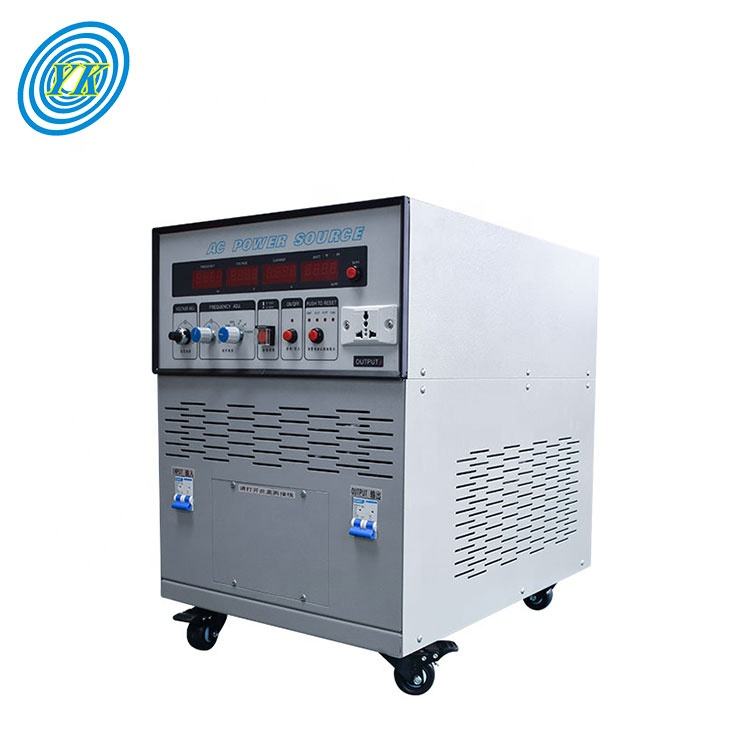
YUCOO's Variable Frequency Drive (VFD) is a type of power electronics device that controls the speed and torque of an electric motor by varying the input frequency and voltage. This is achieved using a method called Pulse Width Modulation (PWM).
Power Electronics in YUCOO's VFD
Power electronics is a key technology in YUCOO's VFD. It involves the conversion and control of electrical power with the help of electronic devices. This technology is used in the VFD to convert the incoming AC power to DC, and then back to a variable-frequency AC power. This conversion process is crucial in controlling the speed of the electric motor connected to the VFD.
Power electronics in YUCOO's VFD also allows for smooth and precise control of the voltage and frequency supplied to the motor, leading to improved motor performance, reduced energy consumption, and extended motor life.
Pulse Width Modulation (PWM) in YUCOO's VFD
PWM is a modulation technique used in YUCOO's VFD to generate variable voltage and frequency output. It works by varying the width of the pulses in a pulse train, which controls the total power delivered to the load. In a VFD, PWM is used to create a simulated AC waveform at variable frequency to drive the motor.
PWM in YUCOO's VFD allows for precise control of motor speed and torque, resulting in high performance and energy efficiency. It also reduces harmonic distortion, which can lead to motor heating and reduced lifespan.
In conclusion, power electronics and PWM are two key features of YUCOO's VFD that contribute significantly to its overall performance and efficiency. By using these technologies, YUCOO's VFD can provide precise and efficient control of motor speed and torque, leading to improved performance, reduced energy consumption, and extended motor life.
YUCOO's Inverter and Power Converter: Bridging DC and AC for Energy Efficiency
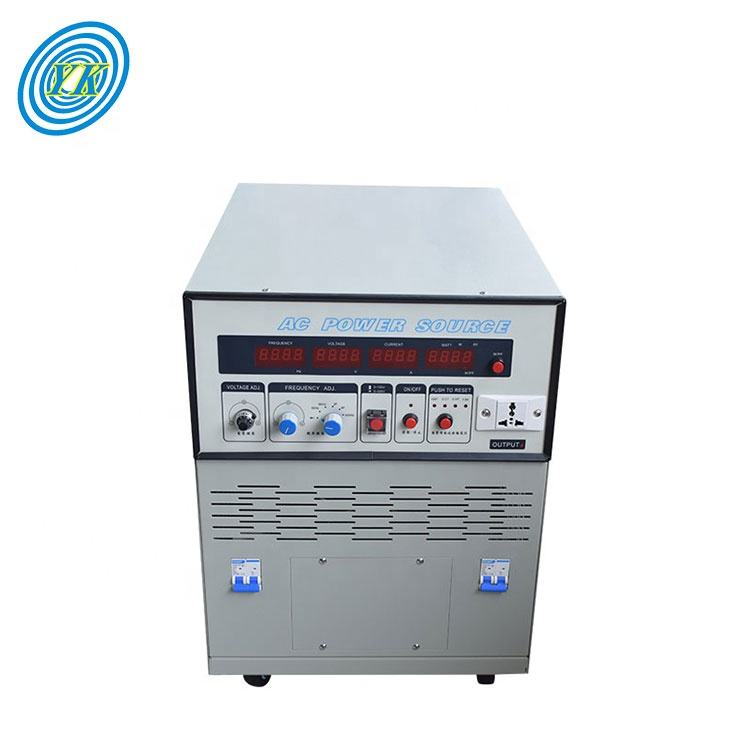
YUCOO's inverter and power converter play a critical role in energy efficiency by effectively transforming Direct Current (DC) into Alternating Current (AC), and vice versa. This conversion process is crucial in various applications, including renewable energy systems, electric vehicles, and industrial machinery.
YUCOO's Power Converter
The power converter in YUCOO's systems is a power electronics device that can convert electrical energy from one form to another. In the case of a Variable Frequency Drive (VFD), the power converter first transforms the incoming AC power into DC. This process is known as rectification.
The power converter in YUCOO's VFD is designed for high efficiency, which means that it minimizes energy loss during the conversion process. This leads to lower energy consumption, which can result in significant cost savings for users.
YUCOO's Inverter
After the power converter has transformed the AC power into DC, the inverter then steps in. The inverter in YUCOO's VFD is responsible for converting the DC power back into AC. However, this is not just a simple conversion. The inverter uses a technique called Pulse Width Modulation (PWM) to create a simulated AC waveform at a variable frequency. This allows the VFD to precisely control the speed and torque of the motor.
YUCOO's inverter is designed for high efficiency and precision. It reduces harmonic distortion, which can lead to motor heating and reduced lifespan. Moreover, it allows for precise control of motor speed, resulting in improved performance and energy savings.
In conclusion, YUCOO's inverter and power converter are crucial components that bridge DC and AC power, contributing significantly to the overall energy efficiency of their systems. By efficiently converting power and precisely controlling motor speed, they help to improve performance, reduce energy consumption, and extend equipment lifespan.
Applications of YUCOO's Frequency Converter in Industrial Automation and Renewable Energy
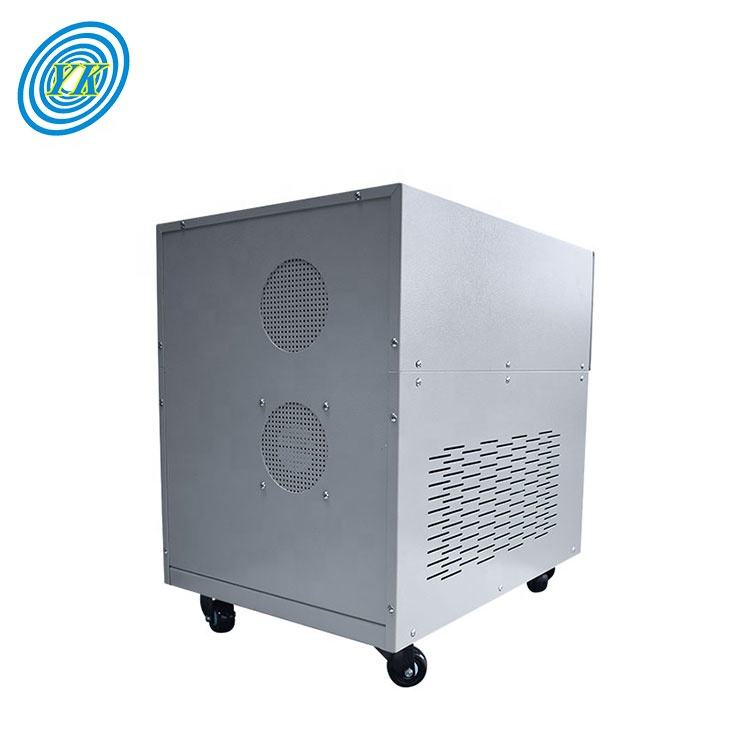
YUCOO's frequency converter, often known as a Variable Frequency Drive (VFD), has wide-ranging applications in both industrial automation and renewable energy sectors. It plays a critical role in power generation, energy conservation, and overall system efficiency.
Industrial Automation
In the field of industrial automation, YUCOO's frequency converter is used to control the speed and torque of electric motors, which drive various types of machinery. The ability to precisely control the speed of motors can significantly improve the efficiency and performance of the automated processes.
For instance, in a conveyor belt system, the speed of the belt can be accurately controlled to match the production speed. This not only improves the efficiency of the production line but also reduces energy consumption as the motor only consumes power as needed.
Renewable Energy
In renewable energy systems, YUCOO's frequency converter plays a crucial role in power generation and energy conservation.
For example, in wind turbines, the speed of the wind can vary greatly. A frequency converter can adjust the generator's speed to match the wind speed, maximizing the energy captured from the wind. This not only increases the efficiency of power generation but also reduces mechanical stress on the wind turbine, thereby extending its lifespan.
Similarly, in solar power systems, the frequency converter can be used to convert the DC power generated by the solar panels into AC power, which is more commonly used in homes and businesses. The conversion process is designed to be highly efficient, minimizing energy loss and maximizing the use of the generated power.
In conclusion, YUCOO's frequency converter has significant applications in industrial automation and renewable energy sectors. Its ability to precisely control motor speed and efficiently convert power forms is critical for improving system performance, conserving energy, and enhancing power generation.
YUCOO's Power Supply in HVAC Systems and Electric Vehicles: A Step Towards Green Energy
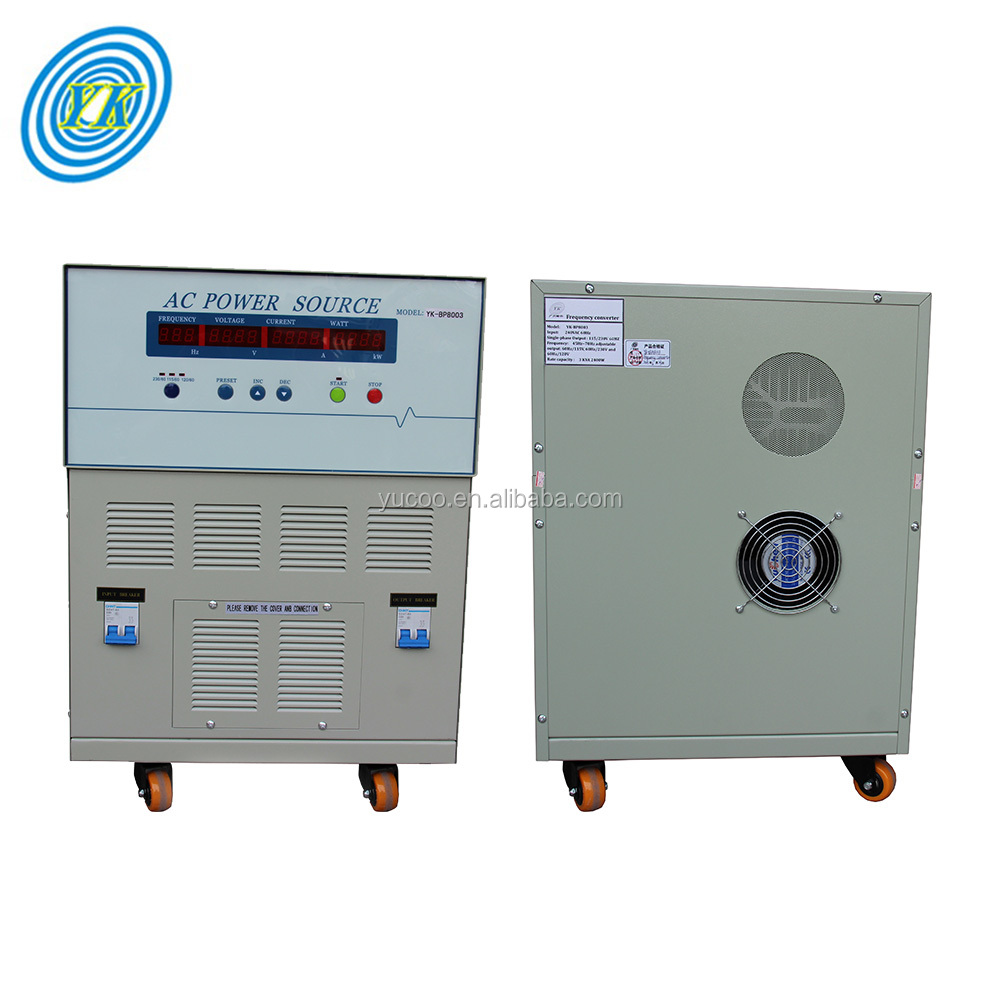
YUCOO's power supply, particularly its Variable Frequency Drive (VFD), finds significant applications in Heating, Ventilation, and Air Conditioning (HVAC) systems and electric vehicles. These applications play a key role in promoting green energy and adhering to energy conservation standards.
HVAC Systems
In HVAC systems, YUCOO's VFD is used to control the speed of the motors that drive the fans and pumps. Traditional HVAC systems often run these motors at full speed and use mechanical systems to control the airflow or water flow. This method is inefficient and consumes a lot of energy.
By using YUCOO's VFD, the motor speed can be precisely controlled to match the demand. This means the motor only consumes as much power as needed, significantly reducing energy consumption. This not only leads to cost savings but also helps in reducing the environmental impact, promoting the use of green energy.
Electric Vehicles
In electric vehicles (EVs), YUCOO's power supply is used in the powertrain to control the speed of the electric motor. The VFD converts the DC power from the battery into AC power to drive the motor. The speed and torque of the motor can be precisely controlled by varying the frequency and voltage of the AC power.
This precise control leads to efficient use of the battery power, extending the driving range of the EV. Furthermore, during regenerative braking, the motor acts as a generator and produces DC power. The VFD can convert this power back to AC, feeding it back to the grid or using it to charge the battery. This not only improves the energy efficiency of the EV but also contributes to energy conservation.
In conclusion, the use of YUCOO's power supply in HVAC systems and electric vehicles is a significant step towards promoting green energy and adhering to energy conservation standards. By providing efficient and precise control of motor speed, YUCOO's VFD helps in reducing energy consumption, lowering environmental impact, and promoting the use of renewable energy sources.
YUCOO and the Future: Smart Grid, IoT, and Industry 4.0
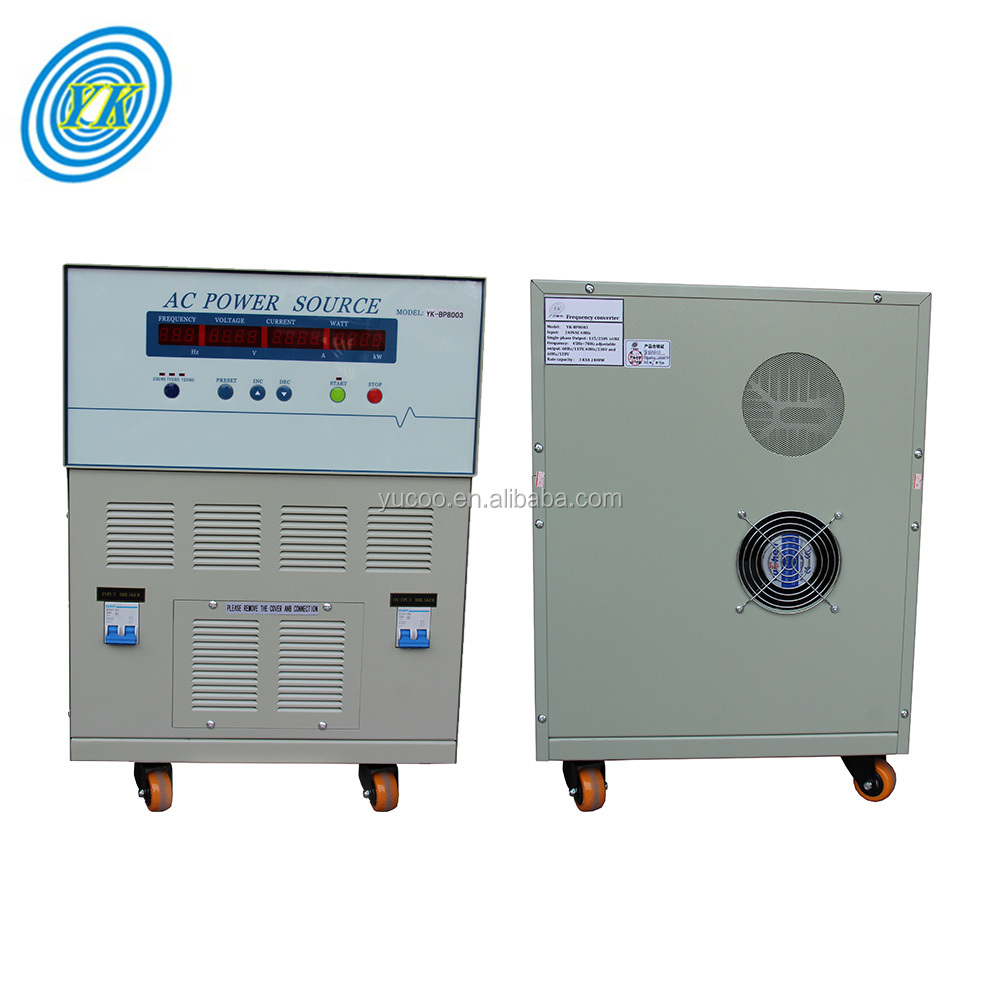
As we look towards the future, YUCOO's variable frequency power supply is well-positioned to capitalize on emerging trends and technologies such as smart grid, Internet of Things (IoT), and Industry 4.0.
Smart Grid
Smart grid technology aims to improve the efficiency, reliability, and sustainability of electricity distribution. YUCOO's power supply can play a significant role in this regard. Its Variable Frequency Drives (VFDs) can help in managing and controlling the power flow in the grid more efficiently. They can adjust the power consumption of the connected devices based on the demand and supply conditions in the grid, thereby improving the overall efficiency of the grid. Furthermore, they can support grid stabilization by providing reactive power compensation and harmonic filtering.
Internet of Things (IoT)
IoT involves connecting devices and systems over the internet to collect and analyze data for better decision-making. YUCOO's power supply can be integrated with IoT technology to provide real-time monitoring and control of the power parameters. This can lead to improved energy efficiency, predictive maintenance, and better system performance. For example, in an industrial setup, an IoT-enabled YUCOO power supply can monitor the energy consumption of the machines and adjust their operation to reduce energy consumption and cost.
Industry 4.0
Industry 4.0 refers to the fourth industrial revolution, characterized by the integration of digital technologies with industrial processes. YUCOO's power supply fits perfectly into this vision. Its VFDs can be integrated with advanced control systems for precise control of motor speed and torque, leading to improved process efficiency and productivity. Furthermore, the data collected from the VFDs can be used for predictive maintenance, reducing downtime and maintenance costs.
In conclusion, YUCOO's variable frequency power supply is well-suited to capitalize on the future trends and technologies like smart grid, IoT, and Industry 4.0. By integrating with these technologies, YUCOO's power supply can contribute to more efficient and sustainable power distribution, improved system performance, and smarter industrial processes.